Analysts have offered more opinions on Tuesday's Apple special event, with J.P. Morgan and Rosenblatt Securities issuing generally positive notes to investors about the refreshed MacBook Air and Mac mini, but were more enthused about the prospects of the new iPad Pro.
The refreshed iPad Pro lineup is the "most impactful" change among the new arrivals announced during Apple's event, suggests J.P. Morgan in an investor note provided to AppleInsider, due to the degree of innovation and "the ability to drive a refresh cycle of the installed base."
Suggesting it was losing relevance since 2013 due to the proliferation of large-screen smartphones, J.P. Morgan notes the iPad Pro's launch brought the platform closer to the capabilities of a notebook, sparking a revival in the third quarter of 2017. The announcements continued "on the path of increasing the capabilities" of the iPad, while simultaneously making it more portable via a tighter and a lighter form factor.
The addition of Face ID and the redesigned Apple Pencil are said to provide more convenience to users.
In a separate note, Rosenblatt analyst Jun Zhang states it is positive about this iPad Pro cycle due to its fully-upgraded design, with the addition of Face ID being a good thing for 3D-sensing component suppliers.
Zhang also expects the shipments of the new models to "offset some of the weakness seen in iPhones" in the fourth quarter. This is cited as the main reason the firm believes the quarterly results will be in line with, or better than, its estimates after recently trimming iPhone shipment expectations.
J.P. Morgan suggests the update to the MacBook Air is unlikely to drive a major upgrade cycle, despite the upgraded components, as the "target use case is still centered around personal use" relative to the "greater opportunity" for driving MacBook Pro upgrades for professional users. However, while the changes are thought to be less relevant to existing users, the changes may be more attractive for new users, especially considering Apple's data revealed 51 percent of Mac buyers were new customers.
The analysts did note the updates made to the Mac mini, including a massive processor performance jump from the previous generation, but suggested it to be a "more normal course" of upgrades compared to the iPad Pro.
On the Rosenblatt side, the updated MacBook Air's addition of Touch ID is expected to "finally lead to the move to 3D sensing in 2019," possibly referring to the potential use of Face ID in the MacBook range. The Mac mini is thought to possibly "drive some PC sales growth in the mid-end market" due to its reasonable pricing.
J.P. Morgan's estimates and assessments of Apple's offerings are generally unchanged from previous analyses. The Rosenblatt examination is uncharacteristically positive for the firm — yet the target price for the stock still remains at $200, well below the current value.
The investor notes from J.P. Morgan and Rosenblatt Securities follow after other comments made by Loup Ventures analyst Gene Munster, which suggested the new launches were "incrementally positive" to Apple's overall story. The iPad Pro's improvements and addition of USB-C makes it "more ambiguous" as a tablet and making it a lower point of entry to owning a fully-fledged "computer," Munster advised, while also praising Apple's retail efforts as an "underappreciated competitive advantage."
 Malcolm Owen
Malcolm Owen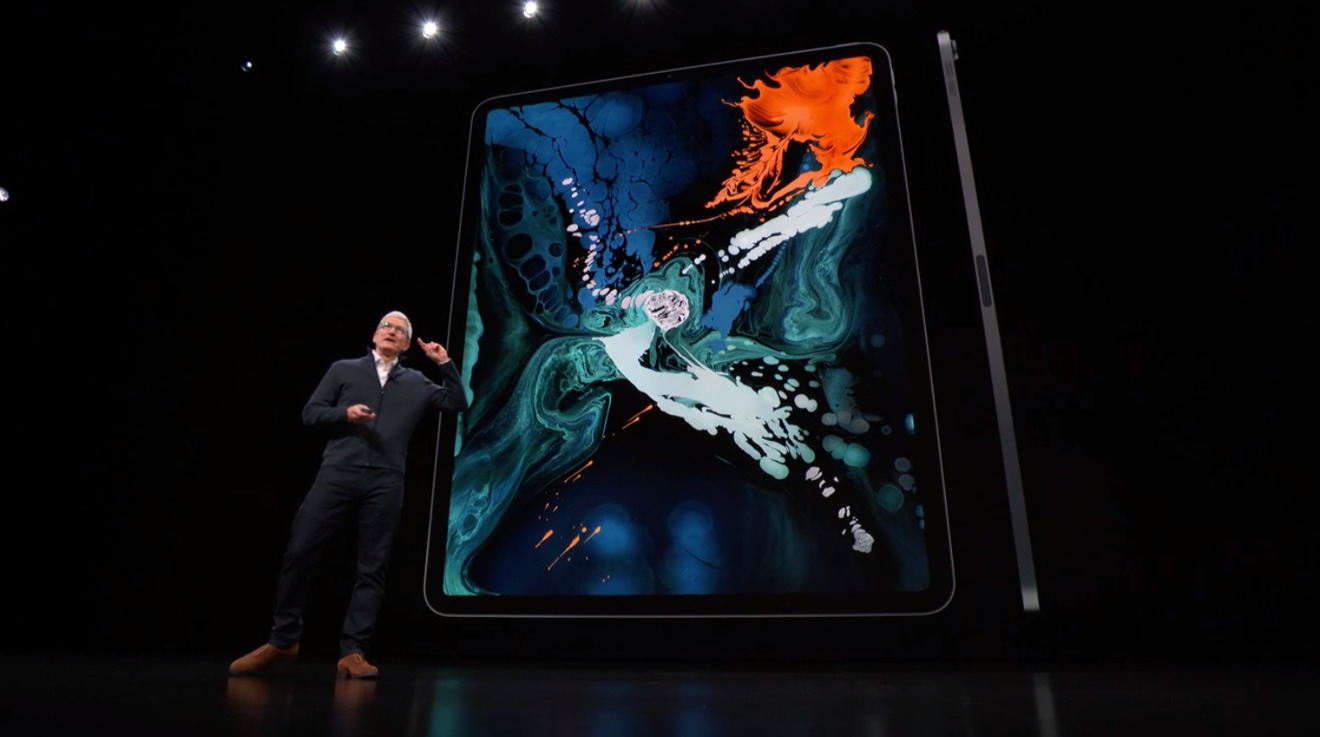
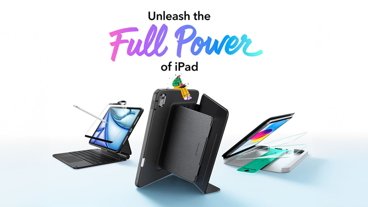



-xl-(1)-xl-xl-m.jpg)


-m.jpg)





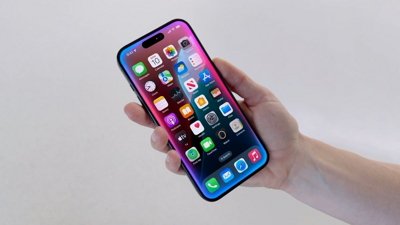
 Amber Neely
Amber Neely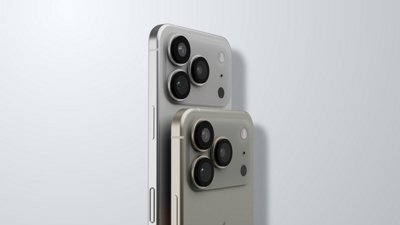
 William Gallagher
William Gallagher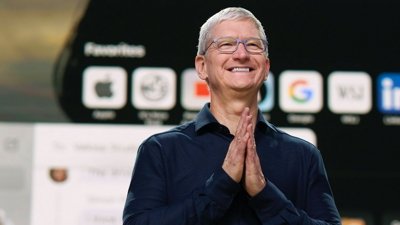
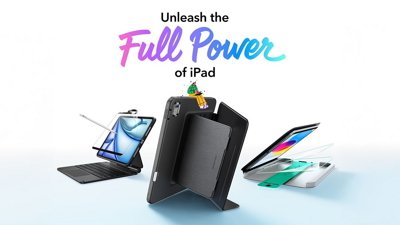
 Sponsored Content
Sponsored Content
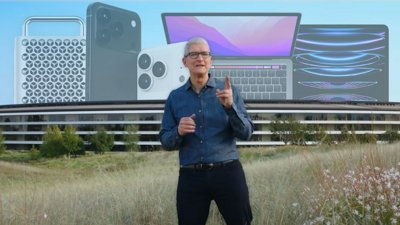

 Mike Wuerthele
Mike Wuerthele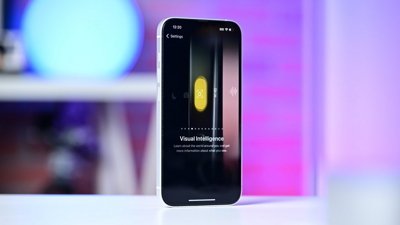
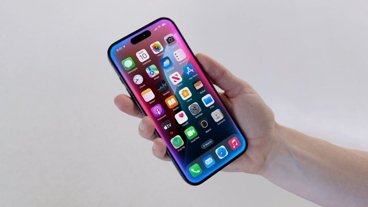

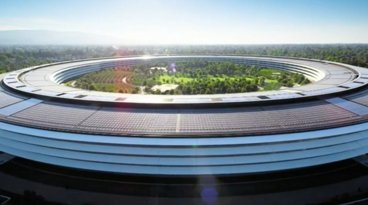






12 Comments
Of course Wall Street is happy.
I agree that the largest iPad Pro can be thought of as a computer replacement, barring one important missing component: mouse/trackpad. If Apple were just not so stubborn and brought about the mouse/trackpad capability, I would say that casual and non-professional computing could be done entirely on the iPad.
During the latest Apple event where the new iPads were revealed, it was mentioned that the CPU on the new iPad is more powerful than in 95% of computers sold worldwide. I believe that this is a hint that soon we will see a new device coming out of Apple. I think the Apple's A chips are now powerful enough to power laptops, so there may, after all, be a hybrid device coming out within a year that will combine the MacBook and the iPad Pro in one device. This, by the way, may be the reason why there currently exists such a confusing field in the Apple's non-Pro laptop lineup. It may very well be that the MacBooks will go away next year and will be replaced by a hybrid MacBook/iPad Pro device that will run on the next iteration of the Apple's A chip, while the Apple's non-Pro laptops will continue as the MacBook Air based on the late 2018 MacBook Air design.